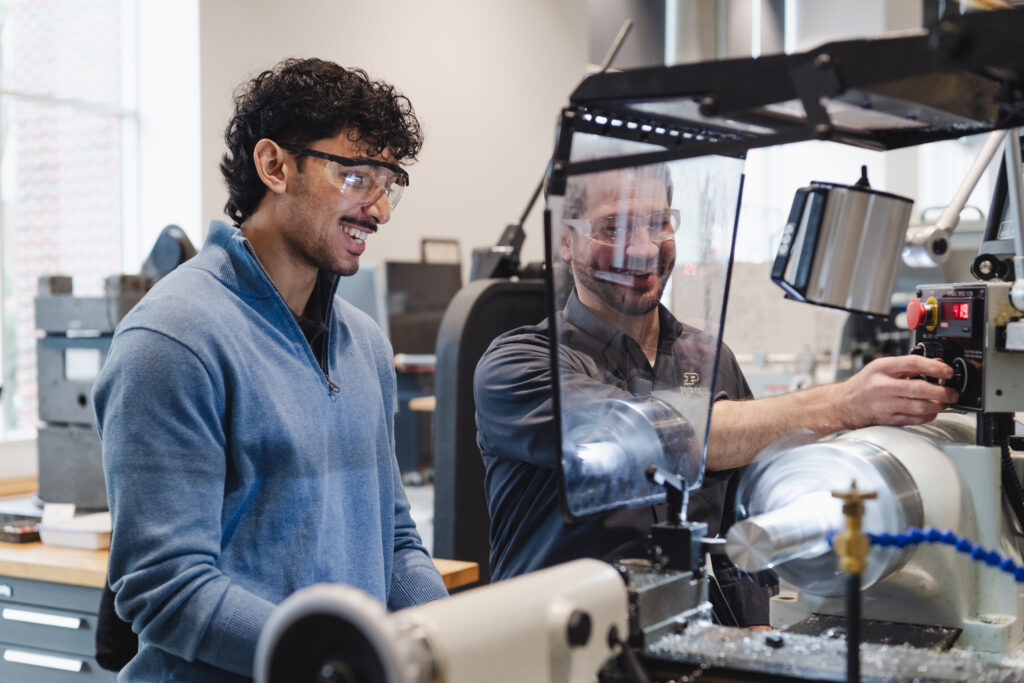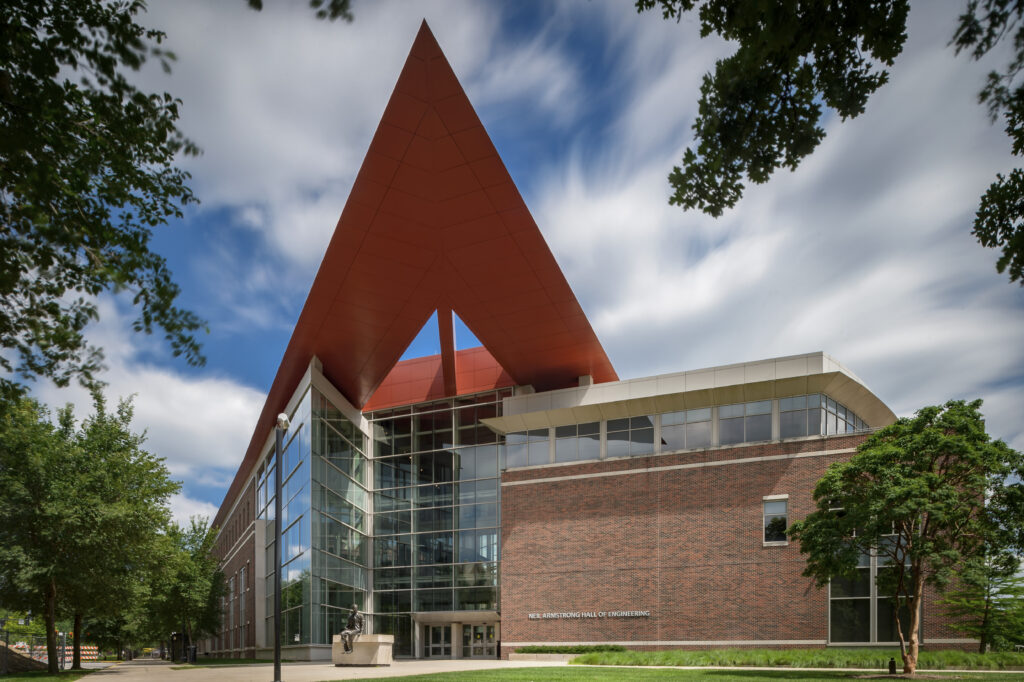The world of engineering is a dynamic one, constantly evolving with new technologies and advancements in practice. To keep pace, educators need to be at the forefront, equipped with the latest knowledge and skills to prepare future engineers for the challenges and opportunities ahead.
Enter Purdue University’s online Master of Science in Engineering Education (MSENE) that empowers professionals with engineering backgrounds to become effective and engaging educators. Whether you’re a seasoned engineer looking for a career change, a current faculty member seeking to enhance your teaching skills, or an industry professional considering a mid-career move to education, the MSENE caters to your specific needs.
Purdue University has a rich heritage in engineering education — its online engineering master’s programmes are ranked #2 by US News & World Report (2023). Home to the world’s first School of Engineering Education, Purdue has been instrumental in shaping how future engineers are educated. Their PhD programme, established in 2004, laid the groundwork for rigorous research in engineering pedagogy. Recognising the need for a broader reach, Purdue introduced the online MSENE programme — the only fully online Master of Science in Engineering Education offered in the US — making this specialised education accessible to a wider range of working professionals.

Source: Purdue University
The 30-credit hour MSENE programme is meticulously designed to deliver high-quality education in a convenient online format, allowing you to complete your degree without disrupting your work or personal commitments. Courses are taught by the same faculty who lead on-campus classes. This ensures that students receive high-quality instruction and have ample opportunities to interact with professors and fellow students. You’ll benefit from asynchronous learning with recorded lectures and materials you can access at your convenience. The programme also fosters interaction with faculty and fellow students through weekly seminars and participation in the Engineering Education Graduate Student Association (ENEGSA).
The core curriculum starts by laying a solid foundation. In “Foundations of Engineering Education,” you’ll explore your role as an educator, map out your learning path, and develop research and writing skills crucial for success. “History and Philosophy of Engineering Education” takes you on a journey through the evolution of the field, examining past trends and philosophies that continue to shape engineering education today. “Engineering Education Inquiry” bridges the gap between your technical background and the research methods specific to engineering education. This course equips you to critically analyse emerging scholarship about teaching and learning and to adapt new instructional strategies for your own setting.
If you’re passionate about shaping the future of STEM education, “Leadership, Policy, and Change in STEM Education” is for you. This course dives deep into the history and current landscape of STEM education policies, exploring how leadership and strategic planning can drive positive change. Alternatively, you can consider the “Theories of Development and Engineering Thinking,” which delves into human development, learning theories, and how they inform effective teaching methods. This course will help you connect these theories to practical applications in engineering education research.

Source: Purdue University
The “Content, Assessment and Pedagogy” course is a cornerstone of the MSENE programme. Here, you’ll take an “engineering design” approach to designing instruction itself. Through an iterative project, you’ll apply your knowledge to a real-world context, building a strong foundation for your journey toward instructional excellence.
A rich selection of electives lets you tailor your learning to your specific interests. Want to hone your classroom techniques? Join “Educational Methods in Engineering” to explore a variety of teaching strategies and best practices for engineering education. For those seeking more hands-on experiences, “Mentored Teaching in Engineering” provides a structured opportunity to gain practical teaching experience under the guidance of a seasoned faculty member.
Whether you dream of a traditional tenure-track faculty position or are seeking alternative career paths, the programme sets you up for several career outcomes. “Exploring Alternative Career Paths as an Engineering Educator” equips you with the knowledge and skills to succeed in various educational and engineering-related settings.

Source: Purdue University
Although the MSENE is fully online, students can still access the benefits of being part of a university ranked among the US’s top 10 public universities. Depending on their background, this includes taking courses offered by other departments. For instance, students without a master’s degree in another engineering field will take additional engineering courses to strengthen their technical expertise.
This document contains just a small sampling of what it’s like to study at Purdue University’s School of Engineering Education, a place with a long and distinguished history. Notably, seven of the 25 American Society for Engineering Education’s Hall of Fame 2023 inductees (the first class of new inductees in nearly 30 years) are affiliated with Purdue. This rich heritage of research and innovation is woven into the MSENE programme, ensuring you receive a world-class education grounded in the latest advancements in engineering education.
Learn more about the Master of Science in Engineering Education.
Follow Purdue University on Facebook, X, LinkedIn, Instagram, and YouTube










